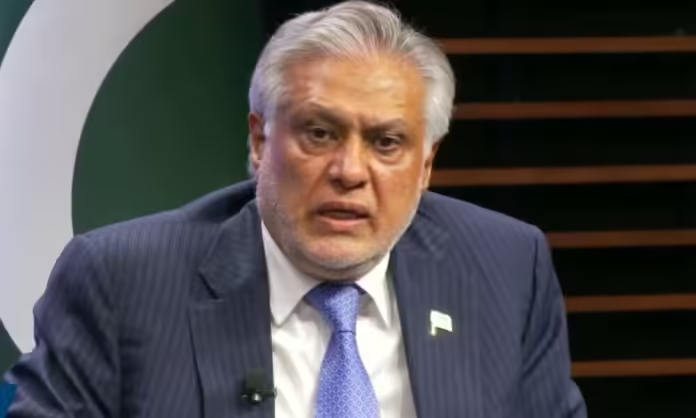Foreign Minister Ishaq Dar Bold Analogy about Imran Khan Arrest in comparison to Dr. Aafia Siddiqui US Case Draws Fire and Fascination
Deputy Prime Minister and Foreign Minister Ishaq Dar has lit a new political firestorm with his provocative statement during his trip to the United States. Addressing the influential Atlantic Council in Washington, Dar stole headlines by making a shocking comparison between Imran Khan’s arrest and the long-term US imprisonment of Dr. Aafia Siddiqui.
This daring comparison has not only awakened the public in both Pakistan and elsewhere but also provoked a heated exchange over the application and perception of judicial systems across borders.
“Respect Judicial Process”: Dar’s Message from Washington
In addressing a panel at the Atlantic Council, Ishaq Dar emphasized not intervening in other countries’ judicial systems. Dar remembered that Pakistan did not intervene in the American judicial process while Dr. Aafia Siddiqui was convicted and sentenced to 86 years in prison by an American federal court. Dar called it a case of the “American legal process” words that evoked general reaction for their connotations and timing.
He further contended that the same principle was to be extended at home. “Imran Khan’s arrest and legal struggles afterward,” Dar declared, “are a part of Pakistan’s judicial process. As much as the US asked us to allow its system to hold its ground, so do we ask others to not intervene in ours.”
Dr. Aafia and Imran Khan: Unequal Cases, Shared Spotlight
The contrast between Dr. Aafia Siddiqui frequently seen in Pakistan as a symbol of national resentment against Western justice and Imran Khan, a divisive political character who is currently beset by several legal issues, has raised eyebrows.
Critics argue that equating a neuroscientist convicted of attempted murder under controversial circumstances in a foreign country to a former head of state facing corruption and contempt charges is misleading. They see the move as politically motivated and tone-deaf to the emotional sensitivity surrounding Aafia Siddiqui’s case in the Pakistani public psyche.
Dar’s supporters argue, however, that his comments were not intended to equate the nature of the two cases, but to highlight the universality of legal sovereignty — that the rule of law, no matter how imperfect or complicated, should be obeyed within every country’s territory.
Political Fallout and Public Reactions
Back in Pakistan, the statement by Dar has provoked a serious reaction from different corners. PTI leaders have described the comparison as “absurd and offensive,” claiming that Imran Khan is being politically victimized under a compromised judiciary.
Human rights campaigners and legal commentators have also entered the fray, warning against the simplification of legal accounts for political expediency. “This sort of rhetoric won’t instill confidence in the legal system it causes polarization,” claimed one Islamabad lawyer.
On Twitter, hashtags #AafiaSiddiqui and #ImranKhan were trending for hours as users energetically argued the relevance and consequences of Dar’s comparison.
A Strategic Blunder or Deliberate Messaging?
Certain analysts are of the view that Ishaq Dar’s remark is a part of a wider strategy to legitimize political detentions in the name of legal process an attempt to justify the government’s crackdown on PTI leadership by framing it in comparative international terms.
Others interpret it as a diplomatic note, quietly conveying to the world powers that Pakistan desires the same respect for its judicial process that it wants for others.
Either way, the Ishaq Dar Imran Khan Aafia Siddiqui comparison has certainly rekindled national debates about justice, sovereignty, and political equity in Pakistan debates that grow ever louder as the nation moves towards a politically uncertain future.
For more news and updates, stay in touch with Pakistan Updates.




